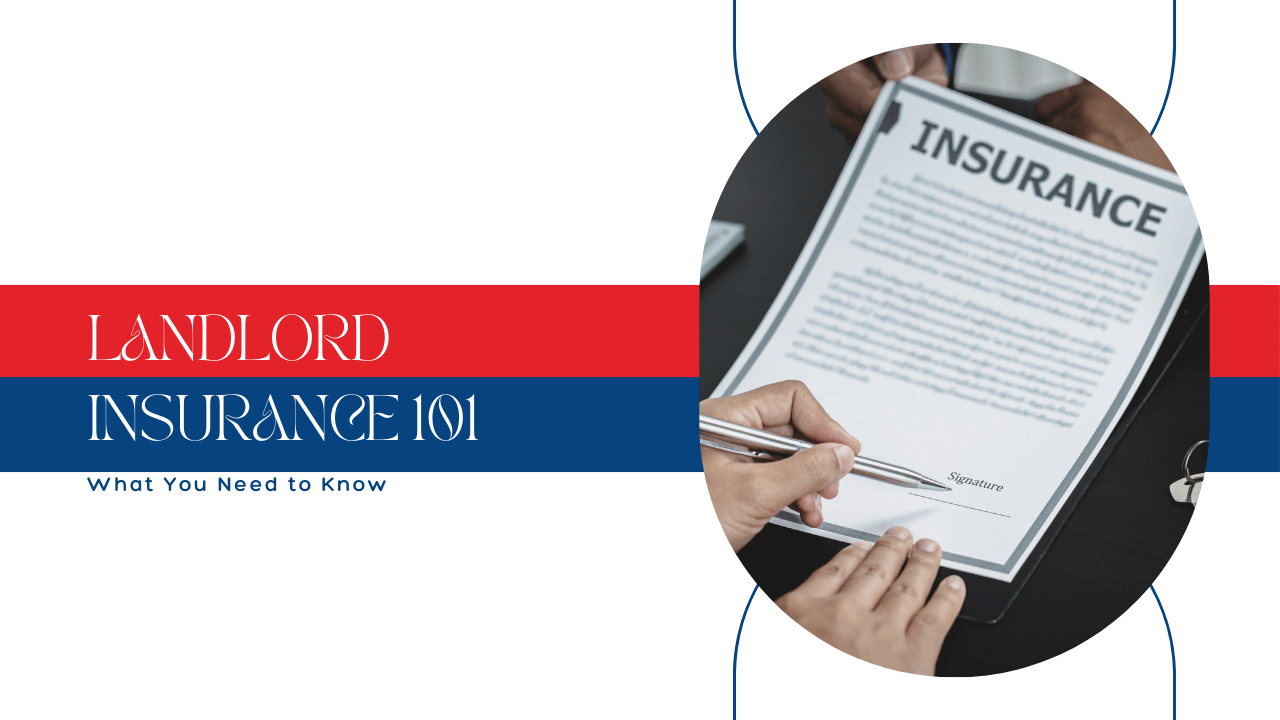
When we talk about landlord insurance basics, we’re talking about the policy that covers both your dwelling, which is the actual physical property, and the liability that you take on as a landlord. Those things are included in a comprehensive landlord policy. We’ll talk about them separately in a minute.
If you’re renting out a home that you once lived in yourself, it’s important that you convert your homeowner insurance coverage to a landlord policy. Your homeowner policy is different and only covers you and your property when you’re an occupant.
The main difference between landlord and homeowner insurance is the liability limit and the coverage limits. If a fire burns up your furniture at your own home, your homeowner insurance will cover that loss. If a fire burns up your tenant’s furniture at your rental property, replacing or repairing those items will not be covered under your landlord policy.
Here’s what you need to know about landlord insurance in Virginia.
Coverage Provided in Standard Landlord Policies
A good insurance agent is invaluable. You’ll want to work with someone who understands investment properties. If you don’t already have a great agent, ask us for a referral. Here’s what you can expect your landlord insurance policy to cover:
Dwellings
Your investment property is protected against any perils such as fire, wind, hail, or structural collapse. Your personal property that’s inside the rental home will also be covered. Appliances, for example, would be repaired or replaced during a covered peril.
Liability
If you are liable for property damage or bodily injury to your tenants, your insurance policy will cover those costs. Medical bills will be covered as well as any lost wages in some circumstances, depending on the policy you buy.
Loss of rent
Most landlord policies include coverage for loss of rent. If there’s a covered loss that your insurance will pay for, the loss of rental income will also be reimbursed. This is protection in case your property becomes temporarily uninhabitable.
The amount of coverage you buy for each of these things will depend on the age and size of your property, its value, and the amount you’d need to rebuild the home.
Renter’s Insurance Protects Landlords and Tenants
We always recommend that you require your tenants to have renter’s insurance.
Renter’s insurance will usually include liability coverage, protection for a tenant’s personal belongings, and sometimes coverage for additional living expenses in case the rental property becomes temporarily uninhabitable. When something happens, allowing your tenant’s insurance company to accept a claim before you make one against your own policy is a much better option.
It’s hard to prepare for the worst case scenario, and tenants often expect that your insurance will cover them during any loss. But accidents can happen, and if there’s damage done to a renter’s possessions, or if someone gets hurt while they’re visiting your tenant, a renter’s insurance policy will reduce a tenant’s overall risk and financial exposure. It will also protect you and keep your own policy from being the first place you turn to make repairs and replacements.
The most important reason that tenants should agree to buy their own renter’s insurance is that there is coverage for their personal property. Educate your residents on this important protection. If there’s a plumbing disaster and the house floods, furniture may be damaged. Electronics may be destroyed. If a window breaks and smashes through a television set, the renter’s insurance policy will cover the cost to replace or repair those items.
A renter’s insurance policy will also cover liability. If a tenant accidentally leaves a stove on and starts a fire, the renter’s insurance will cover the repairs that are necessary. This will save the tenant from a lot of out-of-pocket expenses, protect his or her security deposit, and provide some relief to the landlord.
We always like to remind tenants that renter’s insurance is affordable. They won’t spend more than $20 or $30 per month, especially if they can bundle the coverage with their auto insurance. Put the renter’s insurance requirement in your lease agreement so your tenants know you expect them to have it before they move in.
You can also be added to your tenant’s policy as an additional insured. This will give you access to information about the policy; you’ll know when it’s canceled or renewed. If you’re working with a property manager, they’re the party you’ll want to add as an additional insured.
Adding Your Property Manager as an Additional Insured
 The Additional Insured verbiage on a landlord’s insurance policy means that the coverage is extended not only to the owner of the property but also to the listed property management company. A lot of landlords have worried that the additional insured representation will provide the property management firm with a financial interest in the property.
The Additional Insured verbiage on a landlord’s insurance policy means that the coverage is extended not only to the owner of the property but also to the listed property management company. A lot of landlords have worried that the additional insured representation will provide the property management firm with a financial interest in the property.
That’s a misconception.
Unlike a mortgage holder, the property management company does not have, or want, a financial interest in the property. When we’re listed as an insurable interest, it allows more protection for you and for your property. When a property manager is hired, we take on almost all of the responsibilities as if we were the property owner. So, if something were to go wrong, such as personal injury, the property manager will likely be an immediate target of any lawsuits or claims. For this reason, almost all reputable property management firms have a strong indemnification and hold harmless clauses as part of their management agreement. When you list us as an additional insured, the coverage will automatically be extended to both parties as needed.
Imagine if a major litigation claim takes place. You can bet that both the property manager (us) and the property owner (you) will be named as co-defendants. Having the insurance policy name both parties will serve to create a unified and consistent defense, with one insurance company defending both, streamlining the defense and significantly reducing total legal expenses.
If you still have questions about the insurance requirements for your rental property in Virginia Beach or the surrounding areas, please contact us at Rental Homes USA. We can provide additional resources and information.








